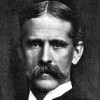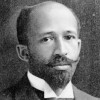There are such things as to speak well, to speak easily, to speak correctly, and to speak seasonably. We offend against the last way of speaking if we mention a sumptuous entertainment we have just been present at before people who have not had enough to eat; if we boast of our good health before invalids; if we talk of our riches, our income, and our fine furniture to a man who has not so much as an income or a dwelling; in a word, if we speak of our prosperity before people who are wretched; such a conversation is too much for them, and the comparison which they then make between their condition and ours is very painful.
[Il y a parler bien, parler aisément, parler juste, parler à propos. C’est pécher contre ce dernier genre que de s’étendre sur un repas magnifique que l’on vient de faire, devant des gens qui sont réduits à épargner leur pain; de dire merveilles de sa santé devant des infirmes; d’entretenir de ses richesses, de ses revenus et de ses ameublements un homme qui n’a ni rentes ni domicile; en un mot, de parler de son bonheur devant des misérables: cette conversation est trop forte pour eux, et la comparaison qu’ils font alors de leur état au vôtre est odieuse.]
Jean de La Bruyère (1645-1696) French essayist, moralist
The Characters [Les Caractères], ch. 5 “Of Society and Conversation [De la Société et de la Conversation],” § 23 (5.23) (1688) [tr. Van Laun (1885)]
(Source)
(Source (French)). Alternate translations:
Some men talk well, easily, justly, and to the purpose: those offend in the last kind, who speak of the Banquets they are to be at, before such as are reduc'd to spare their Bread; of sound Limbs, before the Infirm; of Demesnes and Revenues, before the Poor and Needy; of fine Houses and Furniture, before such as have neither Dwelling or Moveables: in a word, who speak of Prosperity, before the Miserable. This conversation is too strong for 'em, and the comparison you make between their condition and yours is odious.
[Bullord ed. (1696)]
There is speaking well, speaking easily, speaking justly, and speaking seasonably: 'Tis transgressing the last rule, to speak ofthe sumptuous Entertainments you have made, before such as are reduc'd to want of Bread; of a healthy Constitution of Body, before the Infirm; of Demesnes, Revenues and Furniture, before a Man who has neither Dwelling, Rents, nor Movables; in a word, to speak of your Prosperity before the Miserable: this Conversation is too strong from them, and the Comparison they make between their Condition and yours is odious.
[Curll ed. (1713)]
There is speaking well, speaking easily, speaking justly, and speaking seasonably: It is offending against the last, to speak of Entertainments before the Indigent; of sound Limbs and Health before the Infirm; of Houses and Lands before one who has not so much as a Dwelling; in a Word, to speak of your Prosperity before the Miserable; this Conversation is cruel, and the Comparison which naturally rises in them betwixt their Condition and yours is excruciating.
[Browne ed. (1752)]
There is a difference between speaking well, speaking easily, speaking with judgement and speaking opportunely. We fail in this last respect when we enlarge upon the splendid meal we have just enjoyed in front of people who have to be thrifty of their bread; or boast of our health in the presence of invalids; or talk about our wealth, our fortune and property to a man who has neither home nor income; in a word, when we speak of our happiness in front of those who are wretched; such conversation is too painful for them, and the comparison they are bound to make between your state and their own is intolerable.
[tr. Stewart (1970)]
Quotations about:
prosperity
Note not all quotations have been tagged, so Search may find additional quotes on this topic.
As favour and riches forsake a man, we discover in him the foolishness they concealed, and which no one perceived before.
[À mesure que la faveur et les grands biens se retirent d’un homme, ils laissent voir en lui le ridicule qu’ils couvraient, et qui y était sans que personne s’en aperçût.]Jean de La Bruyère (1645-1696) French essayist, moralist
The Characters [Les Caractères], ch. 6 “Of Gifts of Fortune [Des Biens de Fortune],” § 4 (6.4) (1688) [tr. Van Laun (1885)]
(Source)
(Source (French)). Alternate translations:
When Riches and Favour forsake a Man, we see presently he was a Fool, but no body could find it out in his Prosperity.
[Bullord ed. (1696)]
In proportion as Riches and Favour forsake a Man, we discover he was a Fool, which no body cou'd find out in his Prosperity.
[Curll ed. (1713)]
As Riches and Favour forsake a Man, we discover him to be a Fool, but no body could find it out in his Prosperity.
[Browne ed. (1752)]
As a man falls out of favour and his wealth declines, we discover for the first time the ridiculous aspects of his character, which were always there but which wealth and favour had concealed.
[tr. Stewart (1970)]
That in the Heavens no gods there be
Selius affirms, and proves, ’cause he
Still thinking so lives happily.[Nullos esse deos, inane caelum
Adfirmat Segius: probatque, quod se
Factum, dum negat haec, videt beatum.]Martial (AD c.39-c.103) Spanish Roman poet, satirist, epigrammatist [Marcus Valerius Martialis]
Epigrams [Epigrammata], Book 4, epigram 21 (4.21) (AD 89) [tr. May (1629)]
(Source)
(Source (Latin)). Alternate translations:
That heav'ns are voide, & that no gods there are,
Rich Paulus saith, and all his proofe is this:
That while such blasphemies pronounce he dare,
He liveth here in ease, and earthly blisse.
[tr. Harington (1618), ep. 110 (Book 2, ep. 14), "Against an Atheist"]
Selius affirms, in heav'n no gods there are:
And while he thrives, and they their thunder spare,
His daring tenet to the world seems fair.
[tr. Killigrew (1695)]
Selius asserts, there is no providence:
Anmd what he thus asserts, he proves from hence;
Tht such a villain as himself still lives;
And, what is more, is courted too, and thrives.
[tr. Hay (1755)]
A Selius swears there is no god,
And thus attests an oath so odd.
Heaven has no habitant, quoth he;
Else how could heaven so smile on me?
[tr. Elphinston (1782), Book 7, ep. 12]
That there's no God, John gravely swears,
And quotes, in proof, his own affairs;
For how should such an atheist thrive,
If there was any God alive?
[Anon., Westminster Review, 1853-04]
Selius affirms that there are no Gods, and that Heaven is empty; and he produces a proof of his assertion; viz. that while he denies all Providence, he beholds himself affluent.
[tr. Amos (1858)]
Selius affirms that there are no gods, and that heaven is empty; and thinks he has sufficient proof of his opinion in seeing himself become rich while he maintains it.
[tr. Bohn's Classical (1859)]
"There are no gods: heaven is empty," Segius asserts; and he proves it, for in the midst of these denials he sees himself made rich!
[tr. Ker (1919)]
When Segius declaims he knows
That Heaven is void and gods are not,
It is because his record shows
That knaves may have a prosperous lot.
[tr. Pott & Wright (1921), "The Test of Facts"]
"There are no gods," says Segius, "and the blue
Is void." He lives and thrives and proves it true.
[tr. Francis & Tatum (1924), ep. 169]
"There are no gods, and heaven's all a lie!
No gods," said Segius, "give a damn or care
What happens to us." And he must be right:
Today the rat's a multi-millionaire.
[tr. Marcellino (1968)]
Sergius swears by the hollow sky that there are no gods,
and the truth is plain, since he,
denouncing them, is wealthy as can be.
[tr. Bovie (1970)]
"The skies are empty
and the gods are dead,"
says Segius, the proof of which
is that he sees himself made rich.
[tr. Porter (1972)]
"God doesn't exist, there's no one in the skies,"
Says Segius. If it's justice he denies,
He's right: would he be wealthy otherwise?
[tr. Michie (1972)]
Segius declares that there are no gods, that the sky is empty; and proves it, for in the course of these denials he sees himself become a rich man.
[tr. Shackleton Bailey (1993)]
This darkling world he claims, with rue
Has run itself into a ditch.
And he can prove his thesis true:
In such a cosmos -- he is rich.
[tr. Wills (2007)]
Segius says there are no gods, no heaven.
The proof he offers? He's a rich man.
[tr. Kennelly (2008), "Proof"]
Segius asserts that there are no gods, that heaven is empty. And he’s the proof, because, even as he denies these things, he sees that he’s become prosperous.
[tr. @aleatorclassicus (2012)]
Segius claims there are no gods, the skies
are bare. He proves it, too: while he denies
the gods exist, he sees his fortune rise.
[tr. McLean (2014)]
They tell me thou art rich, my country: gold
In glittering flood has poured into thy chest;
Thy flocks and herds increase, thy barns are pressed
With harvest, and thy stores can hardly hold
Their merchandise; unending trains are rolled
Along thy network rails of East and West;
Thy factories and forges never rest;
Thou art enriched in all things bought and sold!But dost thou prosper? Better news I crave.
O dearest country, is it well with thee
Indeed, and is thy soul in health?
A nobler people, hearts more wisely brave,
And thoughts that lift men up and make them free, —
These are prosperity and vital wealth!Henry Van Dyke (1852-1933) American clergyman and writer
“America’s Prosperity” (1 Oct 1916), The Red Flower: Poems Written in War Time (1917)
(Source)
We should measure the prosperity of a nation not by the number of millionaires, but by the absence of poverty, the prevalence of health, the efficiency of the public schools, and the number of people who can and do read worthwhile books.
W. E. B. Du Bois (1868-1963) American writer, historian, social reformer [William Edward Burghardt Du Bois]
“On the Future of the American Negro,” speech (Mar 1953)
(Source)
Freedom is not a luxury that we can indulge in when at last we have security and prosperity and enlightenment; it is, rather, antecedent to all of these, for without it we can have neither security nor prosperity nor enlightenment.
Henry Steele Commager (1902-1998) American historian, writer, activist
Freedom, Loyalty, Dissent, Preface (1954)
(Source)
Our greatest danger is that in the great leap from slavery to freedom we may overlook the fact that the masses of us are to live by the productions of our hands, and fail to keep in mind that we shall prosper in proportion as we learn to dignify and glorify common labour and put brains and skill into the common occupations of life; shall prosper in proportion as we learn to draw the line between the superficial and the substantial, the ornamental gewgaws of life and the useful. No race can prosper till it learns that there is as much dignity in tilling a field as in writing a poem.
Booker T. Washington (1856-1915) American educator, writer
Speech, Cotton States and International Exposition, Atlanta (18 Nov 1895)
(Source)
Reprinted in his autobiography, Up from Slavery, ch. 14 "The Atlanta Exposition Address" (1907).
By virtue of exchange, one man’s prosperity is beneficial to all others.
For friendship adds a brighter radiance to prosperity and lessens the burden of adversity by dividing and sharing it.
[Nam et secundas res splendidiores facit amicitia et adversas partiens communicansque leviores.]
Marcus Tullius Cicero (106-43 BC) Roman orator, statesman, philosopher
Laelius De Amicitia [Laelius on Friendship], ch. 6 / sec. 22 (44 BC) [tr. Falconer (1923)]
(Source)
Alternate translations:
- "Friendship improves happiness and abates misery, by the doubling of our joy and the dividing of our grief." [tr. Addison (1711), Spectator, #68 (18 May 1711)]
- "For prosperity, friendship renders more brilliant, and adversity more supportable, by dividing and communicating it." [tr. Edmonds (1871)]
- "Such friendship at once enhances the lustre of prosperity, and by dividing and sharing adversity lessens its burden." [tr. Peabody (1887)]
- "For friendship both makes favourable things more splendid and disasters lighter, by splitting and sharing them." [Source]
In truth, prosperity tries the souls of even the wise; how then should men of depraved character like these make a moderate use of victory?
[Quippe secundae res sapientium animos fatigant, ne illi corruptis moribus victoriae temperarent.]
Sallust (c. 86-35 BC) Roman historian and politician [Gaius Sallustius Crispus]
Bellum Catilinae [The War of Cateline; The Conspiracy of Catiline], ch. 11, sent. 8 [tr. Rolfe (1931)]
(Source)
Alt. trans.:
- "A series of prosperity is often too much even for the wisest and best disposed: that men corrupted should make a temperate use of their victory could not be expected." [tr. Murphy (1807)]
- "For success unhinges the minds even of wise men; how then should they who were so depraved use their victory with moderation?" [tr. Rose (1831)]
- "For success tries the minds of wise men, much less could they, when their morals were corrupted, use their victory with moderation." [Source (1841)]
- "Success unsettles the principles even of the wise, and scarcely would those of debauched habits use victory with moderation." [tr. Watson (1867)]
- "Since even the wise have their temper tried by prosperity, much less could men of this abandoned character use their success with moderation." [tr. Pollard (1882)]
- "Successful situations overwhelm the minds even of the wise; still less wouild those men of corrupt morals moderate their victory." [tr. Woodman (2007)]
As far as the advocacy of peace rests on material motives like economy and prosperity, it is the service of Mammon; and the bottom of the platform will drop out when Mammon thinks that war will pay better.
A. T. Mahan (1840-1914) American admiral, strategist, historian [Alfred Thayer Mahan]
(Attributed)
(Source)
Attributed in William Ralph Inge, "The Indictment against Christianity" (1917), Outspoken Essays, ch. 10 (1919).
Less than a century ago, the laborer had no rights, little or no respect, and led a life which was socially submerged and barren. He was hired and fired by economic despots whose power over him decreed his life or death. […] American industry organized misery into sweatshops and proclaimed the right of capital to act without restraints and without conscience. […] The inspiring answer to this intolerable and dehumanizing existence was economic organization through trade unions. The worker became determined not to wait for charitable impulses to grow in his employer. He constructed the means by which fairer sharing of the fruits of his toil had to be given to him or the wheels of industry, which he alone turned, would halt and wealth for no one would be available.
This revolution within industry was fought bitterly by those who blindly believed their right to uncontrolled profits was a law of the universe, and that without the maintenance of the old order, catastrophe faced the nation. But history is a great teacher. Now everyone knows that the labor movement did not diminish the strength of the nation but enlarged it by raising the living standards of millions. Labor miraculously created a market for industry, and lifted the whole nation to undreamed-of levels of production. Those who today attack labor forget these simple truths, but history remembers them.
Martin Luther King, Jr. (1929-1968) American clergyman, civil rights leader, social activist, preacher
Speech, AFL-CIO Convention, Miami (11 Dec 1961)
(Source)
You cannot bring about prosperity by discouraging thrift.
You cannot help small men by tearing down big men.
You cannot strengthen the weak by weakening the strong.
You cannot lift the wage earner by pulling down the wage payer.
You cannot help the poor man by destroying the rich.
You cannot keep out of trouble by spending more than your income.
You cannot further the brotherhood of man by inciting class hatred.
You cannot establish security on borrowed money.
You cannot build character and courage by taking away men’s initiative and independence.
You cannot help men permanently by doing for them what they could and should do for themselves.William J. H. Boetcker (1873-1962) German-American religious leader, author, public speaker [William John Henry Boetcker]
“The Industrial Decalogue” (1916)
Often referred to as "The Ten Cannots," and also often misattributed to Abraham Lincoln.
What a country wants to make it richer is never consumption, but production. Where there is the latter, we may be sure that there is no want of the former. To produce, implies that the producer desires to consume; why else should he give himself useless labor? He may not wish to consume what he himself produces, but his motive for producing and selling is the desire to buy. Therefore, if the producers generally produce and sell more and more, they certainly also buy more and more.
The history of the Jews also shows that oppression and persecution are far more efficacious in binding a nation together than community of interest and national prosperity. Increase of wealth divides rather than unites a people; but suffering shared in common binds it together with hoops of steel.
I hold it to be our duty to see that the wage worker, the small producer, the ordinary consumer, shall get their fair share of the benefit of business prosperity. But it either is or ought to be evident to everyone that business has to prosper before anybody can get any benefit from it.
If Heaven had looked upon riches to be a valuable thing, it would not have given them to such a scoundrel.
Jonathan Swift (1667-1745) English writer and churchman
Letter to Miss Vanhomrigh (12 Aug 1720)
(Source)
The Stream of Life sometimes glides smoothly on, through flowry meadows and enamell’d planes. At other times it draggs a winding reluctant Course through offensive Boggs and dismal gloomy Swamps. The same road now leads us thro’ a spacious Country fraught with evry delightful object, Then plunges us at once, into miry Sloughs, or stops our passage with craggy and inaccessible mountains. The free roving Songster of the forest, now rambles unconfin’d, and hopps from Spray to Spray but the next hour perhaps he alights to pick the scattered Grain and is entangled in the Snare. The Ship, which, wafted by a favourable gale, sails prosperously upon the peaceful Surface, by a sudden Change of weather may be tossed by the Tempest, and driven by furious, opposite winds, upon rocks or quicksands. In short nothing in this world enjoys a constant Series of Joy and prosperity.
Most of us have achieved levels of affluence and comfort un-thought of two generations ago. We’ve never had it so good, most of us. Nor have we ever complained so bitterly about our problems. The closed circle of materialism is clear to us now — aspirations become wants, wants become needs, and self-gratification becomes a bottomless pit. All around us we have seen success in the world’s terms become ultimate and desperate failure.
While the earnings of a minority are growing exponentially, so too is the gap separating the majority from the prosperity enjoyed by those happy few. This imbalance is the result of ideologies which defend the absolute autonomy of the marketplace and financial speculation. Consequently, they reject the right of states, charged with vigilance for the common good, to exercise any form of control. A new tyranny is thus born, invisible and often virtual, which unilaterally and relentlessly imposes its own laws and rules.
Francis I (b. 1936) Argentinian Catholic Pope (2013- ) [b. Jorge Mario Bergoglio]
Evangelii Gaudium, sec. 56 (24 Nov 2013)
(Source)
Everything is un-American that tends either to government by a plutocracy, or government by a mob. To divide along the lines of section or caste or creed is un-American. All privilege based on wealth, and all enmity to honest men merely because they are wealthy, are un-American — both of them equally so. Americanism means the virtues of courage, honor, justice, truth, sincerity, and hardihood — the virtues that made America. The things that will destroy America are prosperity-at-any-price, peace-at-any-price, safety-first instead of duty-first, the love of soft living, and the get-rich-quick theory of life.
I pray we are still a young and courageous Nation; that we have not grown so old and fat and prosperous that all we can think about is to sit back with our arms around our money bags. If we choose to do that I have no doubt that the smoldering fires will burst into flame and consume us — dollars and all.
Lyndon B. Johnson (1908-1973) American politician, educator, US President (1963-69)
Speech, House of Representatives (1947-05-07)
(Source)
Speaking on spending in support of the Truman Doctrine, supporting countries threatened by the Soviet Union. Recorded in the Congressional Record, Vol. 93, Part 4, for this date.
For prosperity doth best discover vice, but adversity doth best discover virtue.
Francis Bacon (1561-1626) English philosopher, scientist, author, statesman
“Of Adversity,” Essays, No. 5 (1625)
(Source)
The virtue of Prosperity is temperance; the virtue of Adversity is fortitude.
Francis Bacon (1561-1626) English philosopher, scientist, author, statesman
“Of Adversity,” Essays, No. 5 (1625)
(Source)
He that swells in Prosperity will shrink in Adversity.
Thomas Fuller (1654-1734) English physician, preacher, aphorist, writer
Gnomologia: Adages and Proverbs, #2321 (1732)
(Source)
Prosperity has damn’d more Souls, than all the Devils together.
Thomas Fuller (1654-1734) English physician, preacher, aphorist, writer
Gnomologia: Adages and Proverbs, #3963 (1732)
(Source)
No condition so low but may have Hopes; none so high but may have Fears.
Thomas Fuller (1654-1734) English physician, preacher, aphorist, writer
Gnomologia: Adages and Proverbs, #3555 (1732)
(Source)
O stranger, cease thy care;
Wise is the soul, but man is born to bear;
Jove weighs affairs of earth in dubious scales,
And the good suffers, while the bad prevails.
Bear, with a soul resign’d, the will of Jove;
Who breathes, must mourn: thy woes are from above.[‘ξεῖν᾽, ἐπεὶ οὔτε κακῷ οὔτ᾽ ἄφρονι φωτὶ ἔοικας:
Ζεὺς δ᾽ αὐτὸς νέμει ὄλβον Ὀλύμπιος ἀνθρώποισιν,
ἐσθλοῖς ἠδὲ κακοῖσιν, ὅπως ἐθέλῃσιν, ἑκάστῳ:
καί που σοὶ τάδ᾽ ἔδωκε, σὲ δὲ χρὴ τετλάμεν ἔμπης.]Homer (fl. 7th-8th C. BC) Greek author
The Odyssey [Ὀδύσσεια], Book 6, l. 187ff (6.187-190) (c. 700 BC) [tr. Pope (1725), l. 227ff]
(Source)
(Source (Greek)). Alternate translations:
Stranger! I discern in thee
Nor sloth, nor folly, reigns; and yet I see
Th’ art poor and wretched. In which I conclude,
That industry nor wisdom make endued
Men with those gifts that make them best to th’ eye;
Jove only orders man’s felicity.
To good and bad his pleasure fashions still
The whole proportion of their good and ill.
And he, perhaps, hath form’d this plight in thee,
Of which thou must be patient, as he free.
[tr. Chapman (1616)]
You seem to be a good man and discreet,
But Jove on good and bad such fortune lays,v Happy or otherwise, as he thinks meet;
And since distress is fallen to your share,
You must contented be to suffer it.
[tr. Hobbes (1675), l. 178ff]
Since, stranger! neither base by birth thou seem’st,
Nor unintelligent, (but Jove, the King
Olympian, gives to good and bad alike
Prosperity according to his will,
And grief to thee, which thou must patient bear,)
[tr. Cowper (1792), l. 233ff]
Stranger, who seemest neither vile nor vain,
Zeus both to good and evil doth divide
Wealth as he listeth. He perchance this pain
Appointed; thou thy sorrow must sustain.
[tr. Worsley (1861), st. 25]
Nor vice, nor folly marks thee -- and great Jove
In high Olympus thron'd doth this world's good
To men mete out, the wicked and the just,
E'en as to Him seems best: and this thy lot
He haply hath assign'd;' and 'tis for thee
With patient soul to bear it.
[tr. Musgrave (1869), l. 289ff]
Sir guest! since thou no sorry wight dost seem;
And Zeus himself from Olympus deals out weal
To the good and band: -- to each as it pleaseth him:
And somehow he hath sent these things to thee;
So it becomes thee to endure them wholly.
[tr. Bigge-Wither (1869)]
Stranger, forasmuch as thou seemest no evil man nor foolish -- and it is Olympian Zeus himself that giveth weal to men, to the good and to the evil, to each one as he will, and this thy lot doubtless is of him, and so thou must in anywise endure it.
[tr. Butcher/Lang (1879)]
O guest, forsooth thou seemest no fool, and no man of ill.
But Zeus the Olympian giveth to menfolk after his will,
To each, be he good, be he evil, his share of the happy day;
And these things shall be of his giving; so bear it as ye may.
[tr. Morris (1887)]
Stranger, because you do not seem a common, senseless person, -- and Olympian Zeus himself distributes fortune to mankind and gives to high and low even as he wills to each; and this he gave to you, and you must bear it therefore.
[tr. Palmer (1891)]
Stranger, you appear to be a sensible, well-disposed person. There is no accounting for luck; Zeus gives prosperity to rich and poor just as he chooses, so you must take what he has seen fit to send you, and make the best of it.
[tr. Butler (1898), rev. Power/Nagy]
Stranger, since thou seemest to be neither an evil man nor a witless, and it is Zeus himself, the Olympian, that gives happy fortune to men, both to the good and the evil, to each man as he will; so to thee, I ween, he has given this lot, and thou must in any case endure it.
[tr. Murray (1919)]
Stranger -- for to me you seem no bad or thoughtless man -- it is Zeus himself who assigns bliss to men, to the good adn to the evil as he wills, to each his lot. Wherefore surely he gave you this unhappiness, and you must bear it.
[tr. Lawrence (1932)]
"Sir," said the white-armed Nausicaa, "your manners prove that you are no rascal and no fool; and as for these ordeals of yours, they must have been sent you by Olympian Zeus, who follows his own will in dispensing happiness to people whatever their merits. You have no choice but to endure."
[tr. Rieu (1946)]
Stranger, there is no quirk or evil in you
that I can see. You know Zeus metes out fortune
to good and bad men as it pleases him.
Hardship he sent to you, and you must bear it.
[tr. Fitzgerald (1961)]
My friend, since you seem not like a thoughtless man, nor a mean one,
it is Zeus himself, the Olympian, who gives people good fortune,
to each single man, to the good and the bad, just as he wishes;
and since he must have given you yours, you must even endure it.
[tr. Lattimore (1965)]
You, stranger, since you do not seem to be
mad or malicious, know that only he --
Olympian Zeus -- allots felicity
to men, to both the noble and the base,
just as he wills. To you he gave this fate
and you must suffer it -- in any case.
[tr. Mandelbaum (1990)]
"Stranger," the white-armed princess answered staunchly,
"friend, you're hardly a wicked man, and no fool, I'd say --
it's Olympian Zeus himself who hands our fortunes out,
to each of us in turn, to the good and bad,
however Zeus prefers ...
He gave you pain, it seems. You simply have to bear it.
[tr. Fagles (1996)]
"Stranger, you do not seem to be a bad man
Or a fool. Zeus himself, the Olympian god,
Sends happiness to good men and bad men both,
To each as he wills. To you he has given these troubles,
Which you have no choice but to bear.
[tr. Lombardo (2000), l. 191ff]
Stranger -- because you seem neither base nor without understanding
Zeus himself, the Olympian, gives out fortune to mankind,
both to the base and the noble, to each one just as he wishes;
so he has given you this, yet nevertheless you must bear it.
[tr. Merrill (2002)]
Since your manners show you are not a bad man or a fool -- it is Olympian Zeus himself who assigns good fortune to men, good and bad alike, as he wills, and must have sent you your personal misfortune -- and you must just endure it.
[tr. DCH Rieu (2002)]
Stranger, you do not strike me as either a rogue or a fool. It is Olympian Zeus himself who dispenses prosperity to men, to both good and bad, to each as he wishes; he must surely have sent you these troubles, and you must bear them as you may.
[tr. Verity (2016)]
Well, stranger, you seem a brave and clever man; you know that Zeus apportions happiness to people, to good and bad, each one as he decides. your troubles come from him, and you must bear them.
[tr. Wilson (2017)]
Stranger, you seem neither malicious nor witless: but it's Zeus, the Olympian in person, who bestows good fortune on men, the good and the bad, to each as he wills; I suppose he chose this lot for you, and you just have to bear it.
[tr. Green (2018)]
Stranger, you don’t seem to be a wicked man,
or foolish. Olympian Zeus himself
gives happiness to bad and worthy men,
each one receiving just what Zeus desires.
So he has given you your share, I think.
Nonetheless, you must still endure your lot.
[tr. Johnston (2019), l. 241ff]
Better beans and bacon in peace than cakes and ale in fear.
Aesop (620?-560? BC) Legendary Greek storyteller
Fables [Aesopica], “The Town Mouse and the Country Mouse” (6th C BC) [tr. Jacobs (1894)]
(Source)
Alternate translations:
Compare to Proverbs 17:1 "Better is a dry morsel with quiet than a house full of feasting with strife."
- "The Difference betwixt a Court and a Country Life. The Delights, Innocence, and Security of the One, Compar'd with the Anxiety, the Lewdness, and the Hazards of the Other." [tr. L'Estrange (1692)]
- "Give me my barley-bread in peace and security before the daintiest feast where Fear and Care are in waiting." [tr. James (1848)]
- "A crust eaten in peace is better than a banquet partaken in anxiety."
We have always known that heedless self-interest was bad morals; we know now that it is bad economics.
Franklin Delano Roosevelt (1882-1945) American lawyer, politician, statesman, US President (1933-1945)
Inaugural Address (20 Jan 1937)
(Source)
Learning is not compulsory; it’s voluntary. Improvement is not compulsory; it’s voluntary. But to survive, we must learn.
W. Edwards Deming (1900-1993) American management consultant, educator
“Quality, Productivity, and Competitive Position” seminar (24-28 Feb 1986)
(Source)
Often paraphrased: "Learning is not compulsory. Neither is survival."































